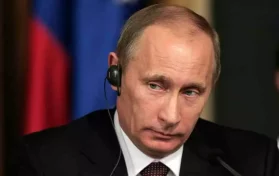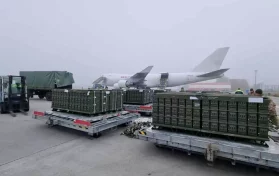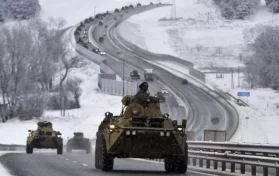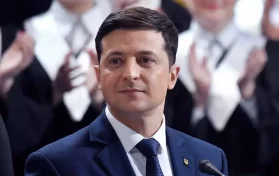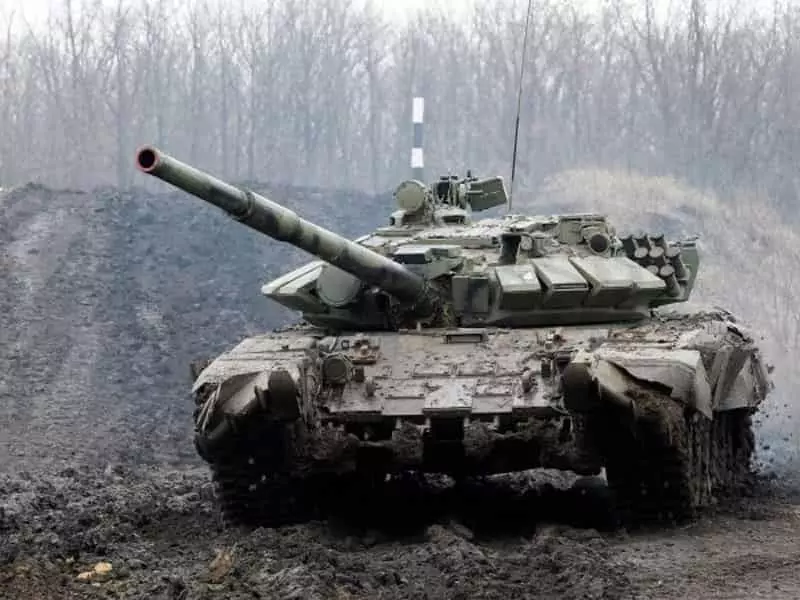
For nearly one year, Ukrainians have anticipated a Russian invasion. Russian President Vladimir Putin has spent the last few months placing troops along the border of the Ukraine, particularly at Belarus. He’s also demanded that the Ukraine not be allowed to join NATO as many other Eastern European countries have done.
On Monday, Putin appeared on Russian television in a press conference that lasted several hours.
During this appearance, Putin spoke about the Ukraine, not as a neighboring country, but as “a part of (Russian) culture.” He also mentioned the taking down of Soviet-era statues in the Ukraine: “You want decommunization? We will show you what it’s like.”
Putin, who was accompanied by Denis Pushilin and Leonid Pasechnik, the heads of the Donetsk and Luhansk republics, areas which Putin declared independent during his Monday speech. Ukrainian government troops have been fighting Russian-backed separatists or “rebels” for quite some time. At least 14,000 individuals have been killed since the separatists and the Ukrainian military have been fighting. Last week, a kindergarten building was shelled, but neither the Ukrainian military nor the separatists would take credit for starting the shelling.
Putin then announced that troops had been deployed into these areas in the eastern part of the Ukraine.
On Tuesday morning, members of the Biden Administration began referring to this move as “an invasion.” This change in lingo comes after Biden described prior possible attacks on the Ukrainian people by Putin’s regime as an “incursion.” Biden came under heavy criticism for saying a short time ago that the West’s reaction would depend on whether a Russian invasion was a “minor incursion” or something more.
Now that members of the Biden Administration are using the term “invasion,” Americans as well as individuals across the world are expecting “tough sanctions” to be announced Tuesday afternoon when President Joe Biden will address the nation regarding Russia’s latest activities in the Ukraine.
Reporters stationed in Lviv, Ukraine described citizens as anxious and getting prepared for the possibility of fighting in their city. Some citizens went to bomb shelters to see if they could still access the facilities (some bomb shelters are so old that citizens were unsure if the keys they had would access the doors of the shelters). The mayor of Lviv says that the city has become a “de facto” capital city in Western Ukraine; many diplomats have fled to the city in the wake of an invasion.
Jon Finer, the principal deputy national security adviser, was the first to utilize the term “invasion” rather than incursion: “We think this is, yes, the beginning of an invasion, Russia’s latest invasion into Ukraine. An invasion is an invasion and that is what is underway.”
An anonymous U.S. official said that the administration had hesitated to use the term invasion “because of the situation on the ground,” and claimed “the White House wanted to see what Russia was actually going to do.”
White House Press Secretary Jen Psaki also posted a tweet in which she “alluded” to the Russian action on the ground being termed an “invasion” when she posted commenting on German chancellor Olaf Scholz’ decision to halt a vote on certifying the Nord Stream 2 pipeline.
According to Psaki, President Biden has “made clear” if there was any type of Russian invasion into the Ukraine, that the United States would back a German decision to halt progress on the Nord Stream 2 pipeline.
Of course, there are multiple issues that could affect not only the United States’ economy, but also the global economy. The United States has been purchasing oil from Russia, and this will surely be a part of the sanctions that President Biden is expected to place on Putin’s regime. In addition, other countries in the European Union get the bulk of their energy from Russia. The most horrific of results from a Russian invasion, however, have to do with human casualties.


